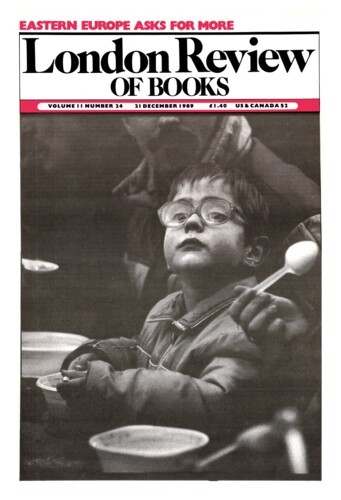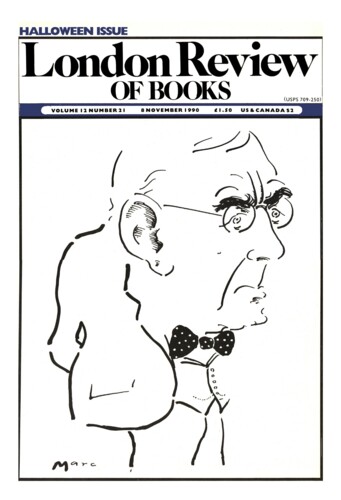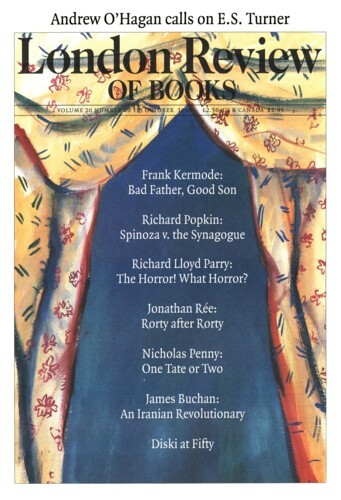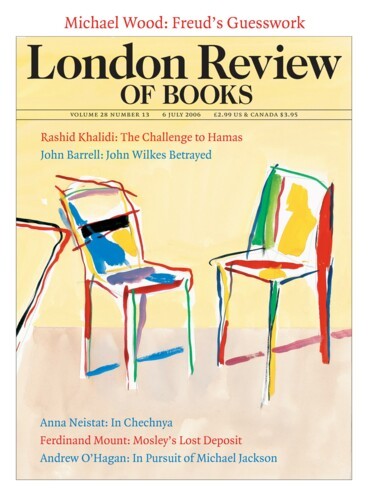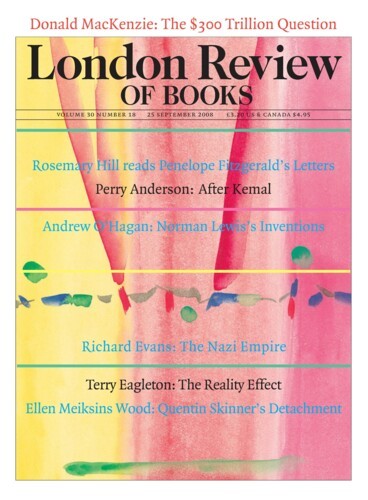One nation, two states
Richard J. Evans, 21 December 1989
Events are moving fast in East Germany. Over the past couple of weeks, the popular revolution, instead of settling down to a period of quiet preparation for free elections, has been gaining momentum. As many people predicted, the regime of Egon Krenz did not last very long. What toppled him was not, however, the fact that nobody could forget his role in rigging the local elections earlier in the year or his ostentatious endorsement of the Chinese authorities’ massacre of the students in Tiananmen Square. What has fuelled the people’s disaffection with the Communist Party has been the revelation, which apparently came as a shock to almost everyone, of the depth of hypocrisy of the old Honecker regime, with its Swiss bank accounts, its vast hunting preserves and its luxury villas stuffed with Western goodies. The popular anger which has vented itself on the offices of the hated Security Police has been driven by the appalling realisation that the privations and hardships which the ordinary GDR citizen was made to undergo in the name of socialism were not shared by Honecker and his fellow guardians of socialist ideological purity.
